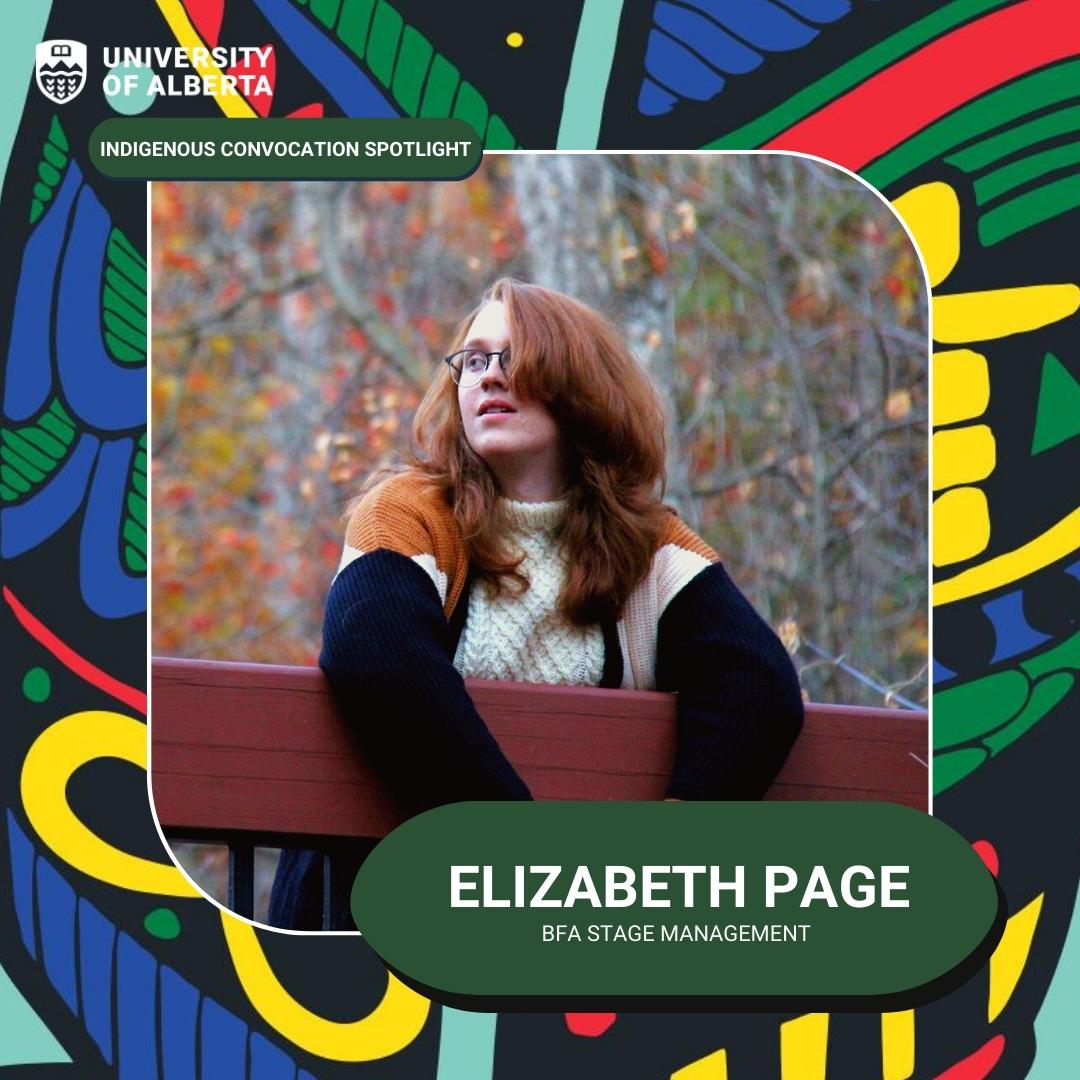Learning to lead
Carmen Rojas - 20 July 2022

When the coordinator of the Department of Drama’s BFA Production program visited her Calgary high school seven years ago, Elizabeth Page (’22 BFA) had no idea she was getting a first glimpse at her future.
Page had been active in theatre since the start of high school and developed an interest in stage management, which involves overseeing all the technical details of a performance. After the presentation from Professor John Raymond, her interest in applying to the U of A’s stage management program — the only one of its kind in Canada — was officially piqued.
The application process for the highly-competitive program was daunting. “It was long and difficult, but I totally get why,” Page says. “They only accept three to five students a year and they need to make sure they’re accepting the best students they can.”
Page says she thinks back to day one of the program often, as one of the highlights of her experience. “That’s the first day I met some of my closest friends,” she says.
These were the friends she would navigate the ups and downs of the next four years with, facing obstacles none of them could have imagined on that first day. When the COVID-19 pandemic hit in 2020, the impact on performance-based programs like the ones in the Department of Drama was felt particularly deeply.
“Moving online was difficult for everyone, but for us specifically because it’s a hands-on program,” Page says.
For BFA Production students — which includes Stage Management, Design and Technical Production routes — the hands-on experience comes from mounting four productions at the Timms Centre for the Arts each year. There is simply no way to replicate online the learning that comes from helping a show run smoothly — from referencing the script and taking detailed notes on all aspects of the production, to communicating closely with actors, lighting and sound technicians.
Fortunately for Page and her classmates, their special circumstances made it possible for the program to get back on track sooner than most. “Due to our incredible teaching staff, we were able to get special permission to come back in person in January 2021 and we’ve been on campus since,” says Page.
Along with the unique challenges caused by the pandemic, Page faced personal challenges as well. Near the end of her second year in the program, she came out as transgender. The immediate response from Raymond was to find out how he could support Page and help her navigate the program better.
“He started bringing in transgender stage managers from the community to help show me and my colleagues that it was going to be fine,” she says.
Page’s classmates in the tight-knit program were extremely supportive as well. “I think being in the arts is one of the great blessings of my life because people here are really accepting,” she says.
With her undergraduate degree now officially behind her, Page is appreciative of everything she learned and the community building she experienced.
“My knowledge and skills have grown immensely, and I’m still learning and growing,” she says. “I like to think that I’m going to learn and grow forever.”
“The biggest thing for me is making sure you have a solid base and that you have people you can rely on when you stumble,” she adds. “Surrounding yourself with people who want to see you grow and succeed."
Page is excited for what the future holds, both in the short and long term. After recently finishing work on the production Immaculate Perfection, which had an 11-day run in Edmonton, she’s now looking forward to stage managing Monique the Unique Unicorn at next month’s Fringe Festival.
Looking further ahead, Page and a friend from the program, who are both Métis, have their sights set on one day starting their own theatre company to help Indigenous youth learn the technical aspects of theatre.
“There’s a really big push to get Indigenous voices on stage and in front of the screen, but we want to see more of our people do the behind the scenes work,” she says. “That work is also incredibly fulfilling and rewarding, and it’s also really important that we have authentic voices telling authentic stories on all fronts, which is why I do what I do.”
“More than anything, I want to make work that I want to see and make products that I’m happy with.”